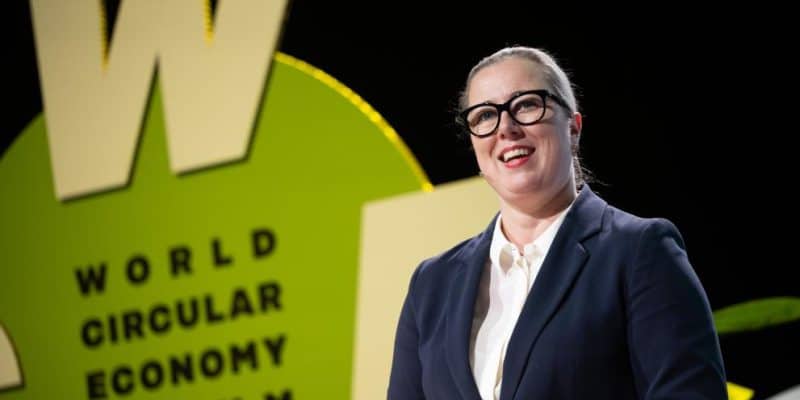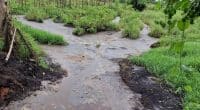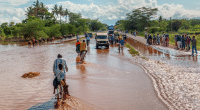Among the leading participants at the World Circular Economy Forum (WCEF 2024), which closes in Brussels on 18 April, is the European Union (EU), which is determined to play its part in the transition to a circular economy in Africa. Its new "SWITCH to Circular Economy in East and Southern Africa" programme, launched at the WCEF village on 16 April 2024, should support this approach.
While the day of 16 April 2024 was dedicated to “raising Europe’s awareness of the need for ambitious European policies and circularity to ensure economic prosperity, including in low-income countries” on the site of the World Circular Economy Forum in Brussels, the European Union (EU), through its executive body the European Commission, has launched an initiative for East and Southern Africa. Called “SWITCH to Circular Economy in East and Southern Africa”, the programme aims to increase the circular economy in key value chains in the two targeted sub-regions, with a view to mitigating climate change. The EU will inject €40 million in funding over five years.
“Nobody can predict the future, but that doesn’t mean we can’t influence it. It is possible to make circularity the next megatrend”, said Jutta Urpilainen, European Commissioner for International Partnerships, at the launch of the “SWITCH to Circular Economy in East and Southern Africa” programme.
Targeting plastic and electronic waste value chains
The choice of East and Southern Africa is not insignificant. They are among the sub-regions where the promotion of the circular economy is already well advanced. In East Africa, for example, Rwanda launched its national circular economy plan in 2022, alongside the WCEF 2022, which it hosted. This programme, which will require an investment of 211 million dollars, is expected to contribute to climate resilience and carbon neutrality by 2050 in various sectors, including waste, water, agriculture, textiles, transport, construction and information and communication technologies (ICTs).
And in southern Africa, South Africa already recognises the role of the circular economy in developing a sustainable, low-carbon, resource-efficient and globally competitive economy.
Read Also –
The €40 million funding announced by the EU will further support capacity building for actors working on the transition to a circular economy in Eastern and Southern Africa and the implementation of circular economy policies, with a particular focus on the packaging and plastic waste value chains, as well as electronics and e-waste, which are considered hazardous because they contain toxic materials. The EU programme will also support access to finance for players in the waste sector, mainly small and medium-sized enterprises (SMEs), start-ups and even joint ventures.
Following on from this, the European Commissioner for International Partnerships, Jutta Urpilainen, also announced the creation of the EU Circular Economy Resource Centre as part of her Global Gateway strategy.“The EU Circular Economy Resource Centre embodies the EU’s commitment to advancing circularity globally and facilitating the transition to sustainable and climate-neutral societies. The four-year action will mobilise European circular economy know-how, policies and standards, technologies, business models and practices to promote learning and exchange with partners in the neighbourhood, Asia, Africa and Latin America,” says the EU.
The structure, which will cost an estimated €15 million to build, will have three laboratories: a knowledge laboratory on the economy, a policy laboratory on the circular economy and a business laboratory on the circular economy. Implementation of this project, and of the “SWITCH to Circular Economy in East and Southern Africa” initiative, is due to begin before the end of 2024, and will be supported by the Finnish Ministry of Foreign Affairs, the Finnish Sitra Innovation Fund and the Belgian Federal Government Development Agency (ENABEL).
Inès Magoum







